
Swami Vivekananda’s life has been well-studied, but details about some of the things he did continue to surprise us. Can you picture him conversing in English with a hill mynah in the middle of New York City—or singing in Norwegian?
One of Swamiji’s very devoted friends and supporters in New York was Emma Cecilia Thursby (1845–1931). She was a classically trained singer, and she had a very successful career as a concert soloist during the 1870s and 1880s, traveling throughout Europe and North America. She had an incredible three-octave range and she could sing difficult arias by Mozart such as “Der hölle rache” and “Machevifece, o stelle” with ease. After her London debut in 1879 The Times wrote:
“Her voice, a high soprano, is sympathetic, and her method singularly free from all mannerisms. . . . the production of the voice, especially in the higher registers, is remarkable for its ease and absolute purity of intonation.”
During the winter of 1895 Miss Thursby and her close friend Sara Chapman Bull (1850– 1911) arranged several lectures for Swamiji in New York City. It was an intensely busy period for him, teaching classes in the morning and giving lectures in the evening. It was also a busy and fruitful period for Miss Thursby, as her biographer noted:
“The Vedanta philosophy of Vivekananda had, indeed, aided her in at last reaching a strong conviction in her usefulness. She would henceforth devote her life to teaching of that art of singing in which her achievements had been so brilliant; to that art of friendly intercourse in the spirit of which her “Fridays” had already been established; and to that art of kindness and compassion and sacrifice to which so much of her life had already been dedicated.”
この記事は The Vedanta Kesari の June 2020 版に掲載されています。
7 日間の Magzter GOLD 無料トライアルを開始して、何千もの厳選されたプレミアム ストーリー、9,000 以上の雑誌や新聞にアクセスしてください。
すでに購読者です ? サインイン
この記事は The Vedanta Kesari の June 2020 版に掲載されています。
7 日間の Magzter GOLD 無料トライアルを開始して、何千もの厳選されたプレミアム ストーリー、9,000 以上の雑誌や新聞にアクセスしてください。
すでに購読者です? サインイン

Panchakroshi Parikrama of Varanasi
At the snow-capped Kailas, the Divine Lord Shiva was seated with Mother Parvati.
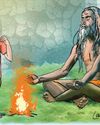
Gadai and the Monks
A fictional narrative based on incidents from the childhood of Sri Ramakrishna.
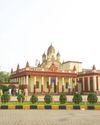
Chintayo momo maanosho Hori...
Sri Ramakrishna loved songs. There probably was no normal day when he did not sing some songs.
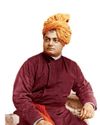
The Vedanta Vaccine
The world is still struggling under the impact of the pandemic due to Covid-19 for the last three years.
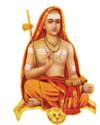
Chandrakirti's Chariot: Self in Madhyamaka Buddhism and Advaita Vedanta
The goal in Advaita Vedanta is the cessation of suffering and the attainment of true fulfillment. Suffering, according to this school, is due to ignorance of the true nature of the self and consequent erroneous identification with the body-mind.
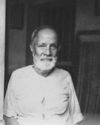
Reminiscences of Sargachhi
Question: यद्यदाचरतत श्रेष्ठसतत्तदरेवरेतरो जनिः। ‘Whatever a superior person does, others do the same thing!’ (Gita 3:21) – What does this statement mean?
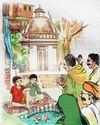
THE AUTUMN FESTIVAL
A fictional narrative based on incidents from the childhood of Sri Ramakrishna.
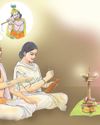
Bards of Guruvayur: Vilwamangalam II
Saints of India
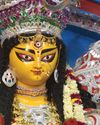
In the Universal Mother’s Divine Playground
Swami Vivekananda never taught the worship of Mother Kali. In a letter to Mary Hale he writes, “Kali worship is not a necessary step in any religion.
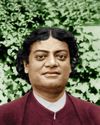
Swami Vivekananda: A Sportsman Par Excellence
In various books and articles, Swami Vivekananda has been called a spiritual leader, a prophet, a patriot, a social reformer, a philosopher, a yogi, a writer, an orator, an educationist, a musician, and so on.